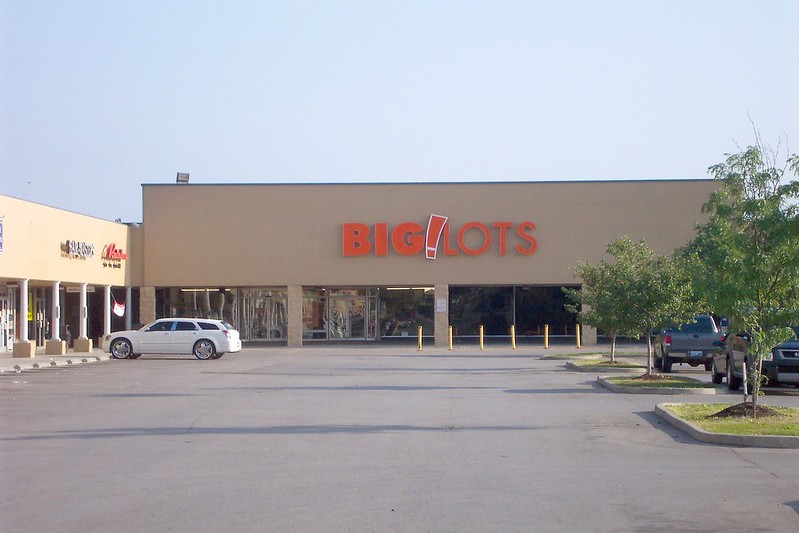In recent months, Big Lots, a well-known discount retailer, filed for bankruptcy, sending ripples through Lexington. This development has raised concerns about the future of the local retail sector and the broader community that depends on it.
This blog looks at the effects of Big Lots’ bankruptcy on Lexington’s retail environment, the opportunities and challenges this presents. We will also cover how local businesses and residents can respond to this change.
Contents
Understanding Big Lots’ Bankruptcy and Its Local Implications
Big Lots has long been a staple for budget-conscious shoppers in Lexington. The store offers a wide range of household goods, furniture, and groceries at discounted prices. Its sudden financial troubles and bankruptcy filing have led to the closure of several stores, including some in Lexington. The impact of this move is felt in various ways throughout the local retail sector.
Firstly, the closure of Big Lots stores affects Lexington’s retail employment. Many employees face uncertainty regarding their jobs. This could lead to a potential rise in local unemployment or the need to find new roles quickly. The loss of these jobs also reduces consumer spending power, which could affect other nearby businesses reliant on the patronage of Big Lots employees and customers.
Secondly, the bankruptcy creates vacant retail spaces in commercial areas that were once busy shopping destinations. This may lead to a decline in foot traffic for surrounding stores, which often benefit from the presence of anchor tenants like Big Lots. Property owners and landlords face the challenge of attracting new tenants in a competitive market while preventing long-term vacancies that can detract from neighborhood appeal.
Despite these challenges, the bankruptcy of Big Lots also opens up potential opportunities for Lexington’s retail sector. Smaller local businesses and other retailers may fill the gap left behind, offering products and services tailored more closely to the community’s needs. This could lead to greater diversity in the retail mix and increased support for locally owned stores.
Challenges Facing Lexington’s Retail Sector Post-Big Lots
The sudden change caused by Big Lots’ bankruptcy presents several hurdles for Lexington’s retail department. One major challenge is the uncertainty surrounding the future of retail spaces left empty by the closures. Many landlords may struggle to find new tenants quickly, especially as the retail industry faces increasing pressure from online shopping alternatives.
Also, local consumers accustomed to Big Lots’ pricing and product range may face inconveniences or increased costs. Finding affordable options for household goods and groceries might become more difficult, pushing some shoppers to travel further or turn to online retailers. This shift in shopping habits could negatively affect other local stores struggling to compete with e-commerce giants.
Another concern is the effect on Lexington’s economy as a whole. Retail stores like Big Lots contribute significantly to local tax revenues, which fund public services and community programs. Store closures can lead to decreased sales tax collection and reduced economic activity in commercial districts.
To address these challenges, Lexington’s community leaders and business owners may need to work together to support struggling retailers and attract new investments. Strategic incentives, such as reduced rent or tax breaks, might encourage new businesses to open in vacated spaces. Moreover, efforts to promote local shopping and community engagement can help bolster the retail sector’s resilience.
Opportunities and Steps Forward for Lexington Retailers
While Big Lots’ bankruptcy presents difficulties, it also allows Lexington to rethink and revitalize its retail sector. Local entrepreneurs could seize the opportunity to open stores that offer unique products or personalized services not found in large chain retailers. These smaller businesses often provide stronger connections to the community and can adapt quickly to changing consumer preferences.
Furthermore, property owners can consider repurposing retail spaces for alternative uses that attract different customer segments. Mixed-use developments, combining retail with entertainment, dining, or office spaces, may bring renewed energy and diverse foot traffic to the area.
Supporting this transition requires coordinated efforts, including guidance from professionals such as a bankruptcy lawyer in Lexington who can assist businesses impacted by the bankruptcy filing. Legal experts can help store owners and landlords understand their rights and options during this period of change.
The city of Lexington can also play a role by investing in local economic development initiatives, improving infrastructure, and promoting events that draw shoppers to commercial districts. Community-driven campaigns encouraging residents to support local businesses will be vital to maintaining a vibrant retail environment.
Moving Beyond Big Lots’ Bankruptcy
Big Lots’ bankruptcy marks a significant shift in Lexington’s retail sector, with challenges and opportunities ahead. While store closures disrupt jobs and commercial activity, they also create space for new businesses and innovative retail models to emerge. The resilience of Lexington’s retail community will depend on the collective efforts of local entrepreneurs, property owners, legal advisors, and city officials.
By embracing change and focusing on community-centered solutions, Lexington can turn this difficult moment into a chance for growth and renewal. For those affected by Big Lots’ bankruptcy or seeking guidance on related matters, consulting a bankruptcy lawyer in Lexington can provide valuable support throughout this transition.




